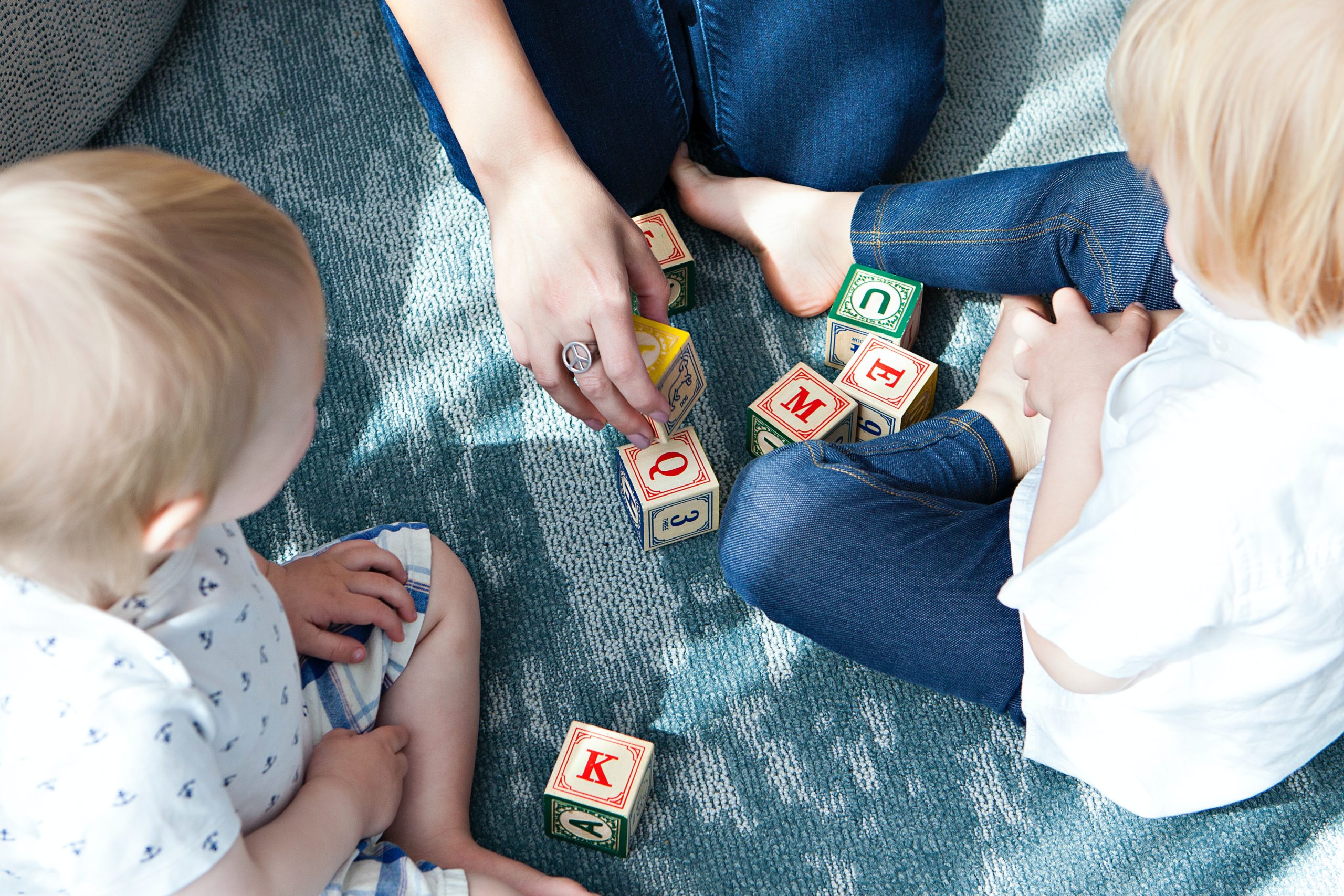NC Child Custody
How is Child Custody Decided in North Carolina?
Child custody will be settled between you and your spouse by written agreement or in a court order. Many couples do not understand that, without some written agreement or court order, a child is vulnerable to unpredictable disruption in living arrangements and discontinuity.
Without a written agreement or court order dictating otherwise, the general rule in North Carolina child custody laws is that each parent has equal rights to the physical possession of a child of the marriage. Hence, relocating the children — in the absence of a written document prohibiting such a move — is not abduction, unless the motivation for moving with the children is to evade the jurisdiction of the North Carolina courts.
Joint Custody vs Sole Custody
The written document governing custody will usually specify whether this parent, who is getting primary physical custody, will have “joint” or “sole” custody.
Even where there has been an amicable settlement on the issue of a child’s principal residence, parents can get hung up on terminology. One parent insists they want “sole custody” and the other parent fights to include the phrase “joint custody” in the written agreement. This fight over language is often less important legally than the spouses think.
These terms typically refer to a parent’s rights to make decisions regarding the child, with “sole custody” indicating that the parent with possession has most or all of the decision-making authority and with “joint custody” tending to indicate that each parent will have some decision-making input. In actuality, these terms are not defined under child custody law – the terms “joint” and “sole” mean whatever the written custody document says they mean. They have no special meaning in North Carolina child custody law. Keep this in mind as you fight over phraseology.
A Judge’s Priority: The Best Interests of the Child
If the issue of custody is put before a judge, the judge will render a custody decision based on the “best interests” of the child. There are many, many factors considered by judges in determining the best interests of a child, most of which are straightforward and self-evident.
Such factors include but aren’t limited to:
- the mental and physical well-being (or lack thereof) of each parent
- each parent’s caretaking capacities
- the role of each parent thus far in taking care of the child
- the age of the child
- the child’s relationship to each parent
- the time that each parent has available to spend with the child
- the environment that the parent can create for the child
- the presence of siblings in the family
- prior bad acts of either parent (as, for instance, abuse and neglect)
- parental drug or alcohol problems
- the willingness of each parent to keep the other parent involved in the child’s life
- each parent’s adult relationships including non-marital sexual relations
Under North Carolina child custody law, a judge is never required to defer to the parental preference of a minor child. In practice, as the child gets older and especially when the child is a mid-teenager, the judge may place more weight on the child’s own desires. Preference will not be the judge’s determining factor. The determining factor will remain the best interests of the child.
Physical Custody and Visitation
In most residential arrangements for children of divorce, one parent has more custodial time with the children and the other parent has less custodial time, also known as “visitation”. Visitation refers, in other words, to the custodial time assigned to the parent with whom a child does not primarily reside. In litigated custody cases in North Carolina, the secondary parent is most frequently awarded alternate weekends, sometimes one overnight during the week or another evening for supper, half of all major holidays, and special days such as Mother’s or Father’s Day and birthdays.
It is quite rare for North Carolina judges to order no visitation for the secondary parent. In cases where one parent proves the child may be in some danger from the other parent, the judge might provide that all visitation will be supervised by either a relative or an unrelated third party such as a social worker in a protected setting.
Over the past few decades, there has been a judicial trend toward increasing the number and length of visitation periods for the secondary parent, although there are exceptions. A few judges believe, for instance, that very young children should remain in one setting most of the time. These judges would, accordingly, award less visitation to the non-custodial parent, at least until the child is older. Most judges, however, do not appear to take the child’s age into account when deciding the length and frequency of visitation periods.
Litigation and Child Custody
If you have to litigate custody, your most important allies in court will be all the people who have observed you interact with your child. These potential witnesses include relatives, teachers, doctors, daycare workers, neighbors, and friends. Such witness testimony will be most helpful where the witness has seen your recent activities and interactions with your child and where you and the witness have also talked about your child.
In order to bolster your custody case, then, you want to be as “visible” a parent as you can be. You do this by fostering your own relationships with all the people who have meaningful contact with your child. These are the same people you might call as witnesses on your behalf at a custody trial. In addition, you may want to secure photographs or videos of the rooms of the place where your child would live with you, as well as photographs of its outside spaces. Such photographs tell the judge more about how your child would be benefited by living with you. Photographs and videos also serve to sharpen a judge’s personal experience of you and your child. Such engagement might lead the judge to take a greater interest in your side of the custody case.
Family Evaluations
North Carolina’s child custody laws allow for third party assistance in tense custody agreements. Some couples are advised, and rightly so, to consider retaining a mental health professional to evaluate the child’s status and developmental needs, as well as the child’s relationships with each parent. You and your spouse may learn a great deal about yourselves and your child during this evaluation process. Having learned new things about yourself, your spouse, and the child, you and your spouse may be able to consider following the recommendations of an impartial psychological evaluator rather than proceed on with litigation.
The custody evaluator may be any competent mental health professional, including a psychiatrist, psychologist, or social worker. In our experience, the training and ideological background of the evaluator matters less than the evaluator’s understanding of children and family dynamics. In the interest of objectivity, the professional selected for the custody evaluation should not be a person who has previously treated any member of your family.
Potential Bias in Child Custody Cases
Occasionally one parent, or both parents independently, will hire their own expert mental health professional to advocate that parent’s custody position in court. Judges tend, however, to give less weight to experts who have been retained for the express purpose of being partial to one or the other side. In fact, some judges will disregard psychological testimony in favor of hearing what other witnesses have to say about their observations. The decision to employ an expert should best be made under advice from an attorney with extensive child custody law knowledge.

NC Child Custody Resources
Co-Parenting Resources
Specialized Resources

North Carolina Child Custody Resource Center
Learn about the resources available to parents and children in Raleigh, Cary, Durham, and the Triangle area, including forms and eBooks, information about relocation, information on health providers, education, parent services, articles, and more.
NC Child Custody FAQs
These terms typically refer to a parent’s rights to make decisions regarding the child, with “sole custody” indicating that the parent with possession has most or all of the decision-making authority and with “joint custody” tending to indicate that each parent will have some decision-making input.
In actuality, however, the terms “joint” and “sole” mean whatever the written custody document says they mean. You need to keep this in mind as you draft your agreement; you also need to keep this in mind when you start to find yourself in a fight over phraseology.
The terms “sole custody” and “joint custody” have no special meaning in North Carolina except the meaning you give them in an agreement or the meaning a judge gives these terms in a court order. In other words, it all depends on what else the document says, if anything, about decision-making.
Welfare of the child. The dominant principle in all child custody actions, including actions to modify custody, is that custody will be awarded to the person or institution who “will, in the opinion of the judge, best promote the interest and welfare of the child.” This language from the statute about the judge’s opinion gives the judge an enormous range of discretion as to the factors the judge actually considers as bearing on the child’s best interests and as to the weight the judge assigns to each of these factors.
When all things are equal between biological parent, no, judges prefer to award 50/50 custody to both parents. NC statute also makes it clear that there is no presumption favoring either the mother or the father. North Carolina has abolished, as have many other states, the maternal preference, which was a presumption that the mother would be most capable of caring for a child during its earliest childhood years. This presumption was commonly known as the “tender years” doctrine.
What may grant favor, however, is if one parent has been present in the child’s life far more than the other parent. If a parent has been absent, neglectful, or malicious to their child, they are far less likely to receive equal custody time to the parent who has proven to be a good and willing caretaker.
When embarking on a custody battle, you should also remember that it is never too late to become a good parent. Put more bluntly, if you can modify your less desirable behavior with respect to your children in positive ways or do additional things to make the grade, you should begin to implement those positive changes immediately. Recent, more extensive involvement with your children, for example, can help ameliorate a history of infrequent closeness.
The court will order that child support be paid to the custodial parent by the non-custodial parent. In North Carolina child support payments are based on guidelines. These guidelines are adhered to by the court in the typical case; however, the court may deviate from the guidelines. The non-custodial parent is ordered by the court to pay a percentage of that parent’s gross monthly income. Please visit our child support calculator to determine how much support you will receive.
Child Support Calculator
The non-custodial, secondary parent’s time with the child is commonly referred to as visitation. Visitation is viewed in North Carolina as a lesser version of custody. Hence, the same principles apply to custody as to visitation in regard to the best interests of the child, parental rights, the child’s wishes, and the discretion of the trial judge.
In most residential arrangements for children of divorce, one parent has more custodial time with the children and the other parent has less custodial time, also known as “visitation”. In litigated custody cases in North Carolina, the secondary parent is most frequently awarded alternate weekends, sometimes one overnight during the week or another evening for supper, half of all major holidays, and special days such as Mother’s or Father’s Day and birthdays.
Over the past few decades, there has been a judicial trend toward increasing the number and length of visitation periods for the secondary parent, although different judges in North Carolina have different philosophies regarding this issue. A few judges believe, for instance, that very young children should remain in one setting most of the time. These judges would, accordingly, award less visitation to the non-custodial parent, at least until the child is older.
Although many clients think they can tie child support payments to visitation privileges, it is important that you understand that the one is legally independent of the other in terms of either unilaterally withholding support or suspending visitation.
Thus, for example, if one party has not received the appropriate child support payment, he or she may not independently decide to bar the other from exercising any visitation rights. There is no supportable legal foundation for such a move. In addition, such retaliation can potentially impair your child’s welfare.
The right of a parent to have custody of his or her minor child is substantial and, while not absolute, cannot be interfered with unless the best interests of the child clearly demand it. Thus, as against other relatives and third parties, a child’s natural parent is entitled to the custody and care of the child in an initial proceeding for custody, absent a finding of unfitness.
However, where the relationship between the child and a non-parent better promotes the child’s welfare than does the relationship between the biological parent and the child, a judge has some latitude to award custody to the non-parent. This will happen, however, in very few contests between a natural parent and a third party.


North Carolina Child Custody Calendar
We’ve developed a free custody calendar application to help you and your family keep custody schedules from becoming a headache. With web and mobile apps, it’s easy to create schedules, document events with notes and photos, and keep in contact with your co-parent, relatives, and parenting coordinators.

















